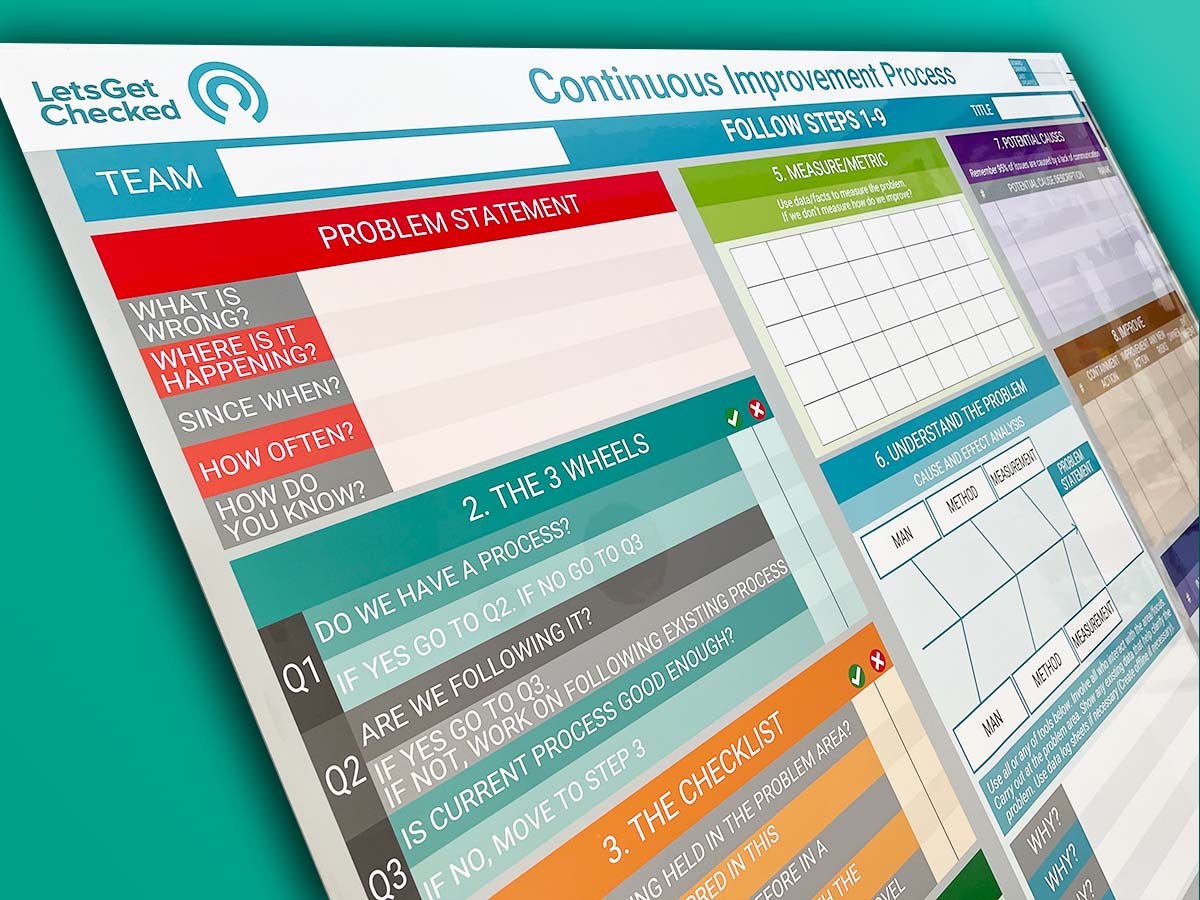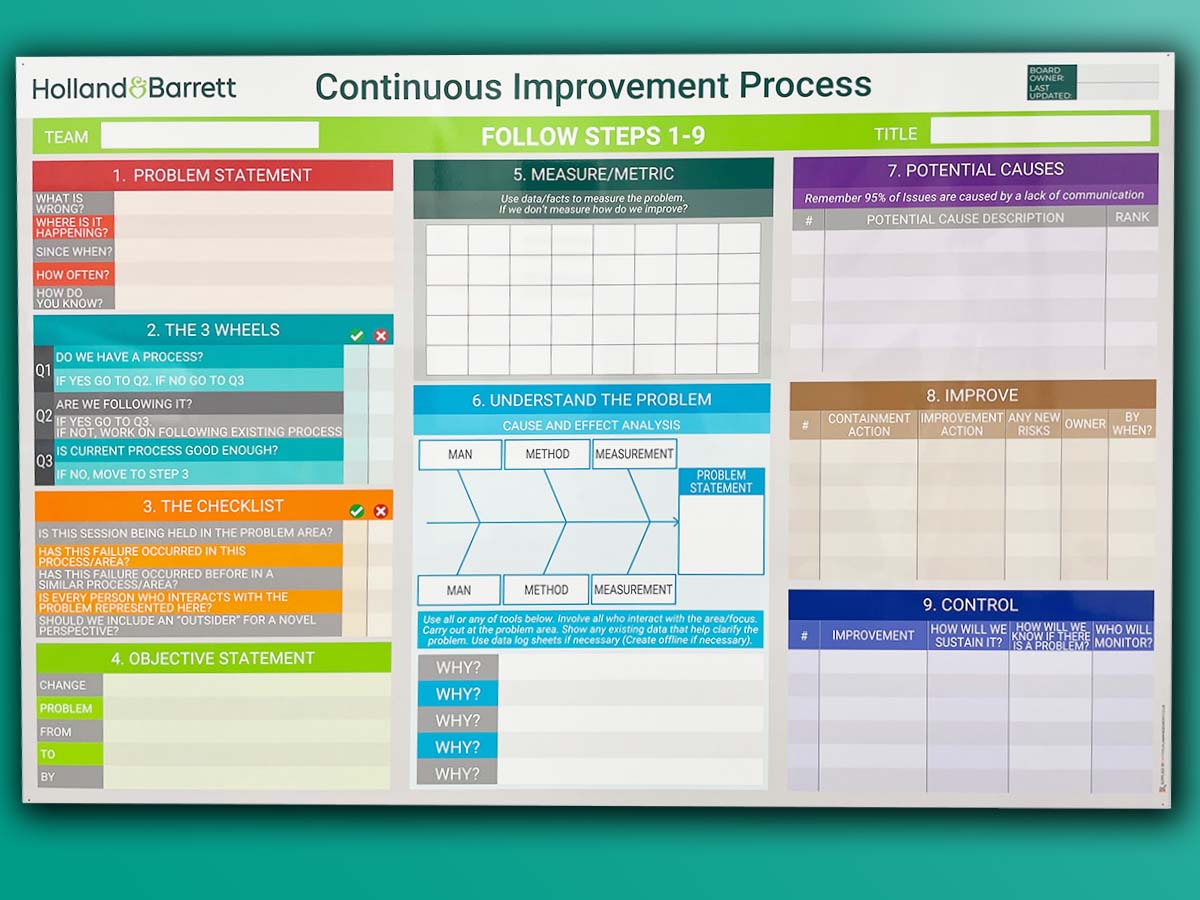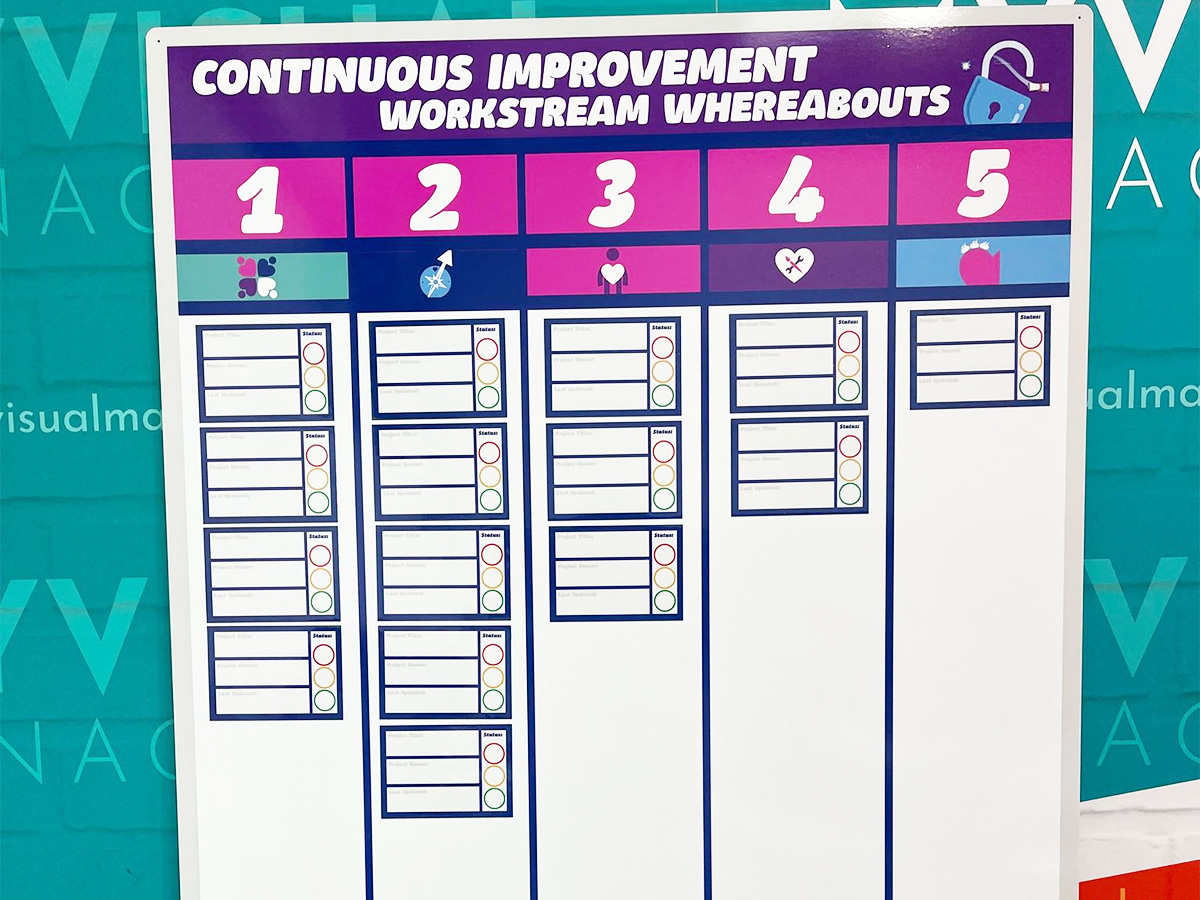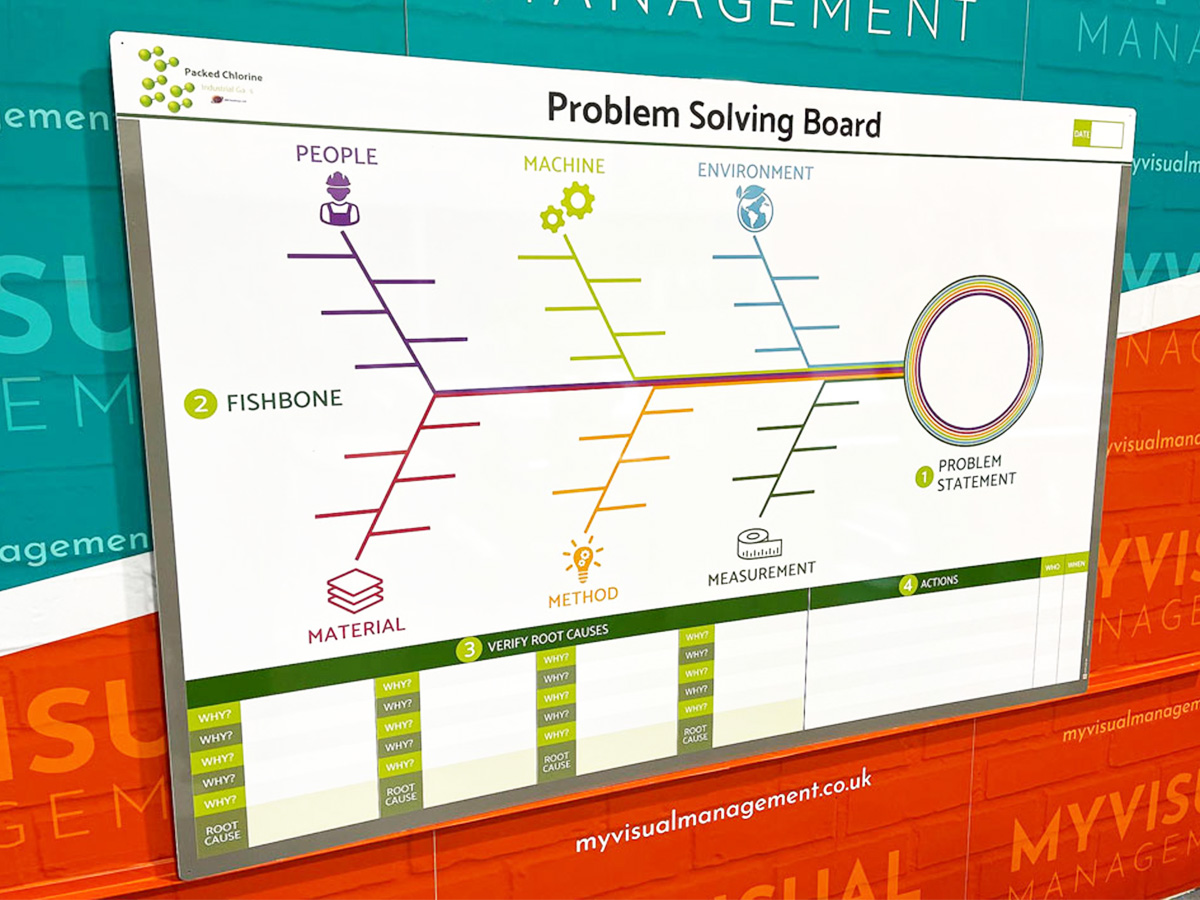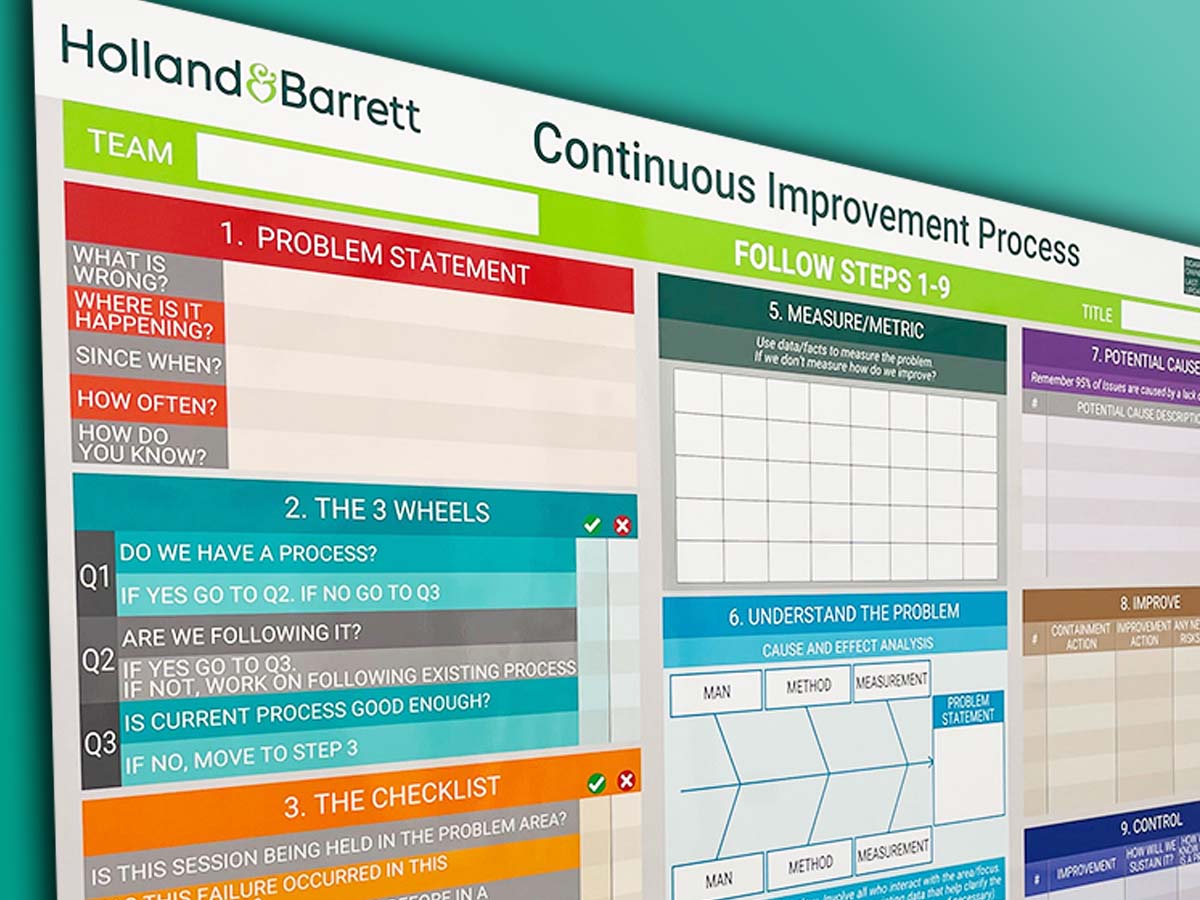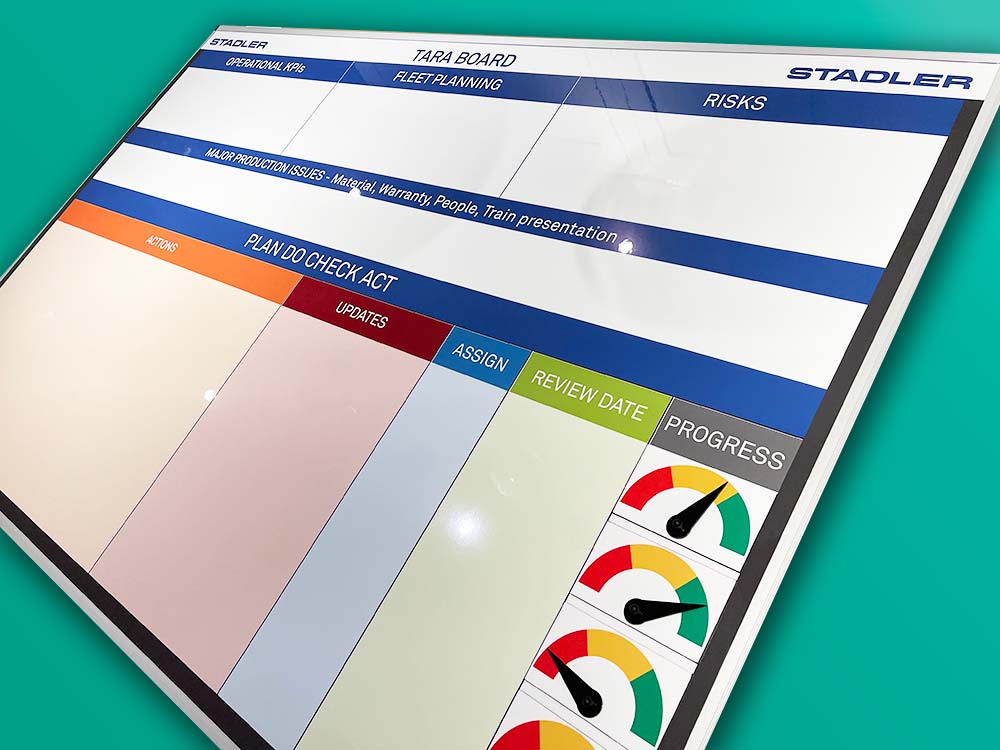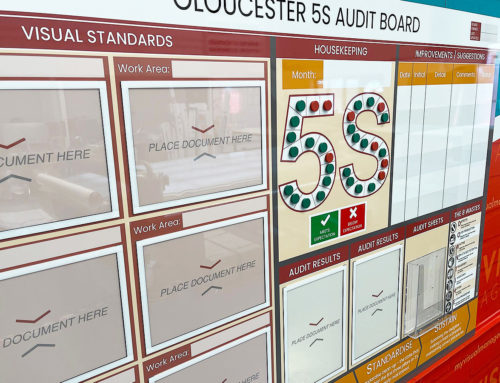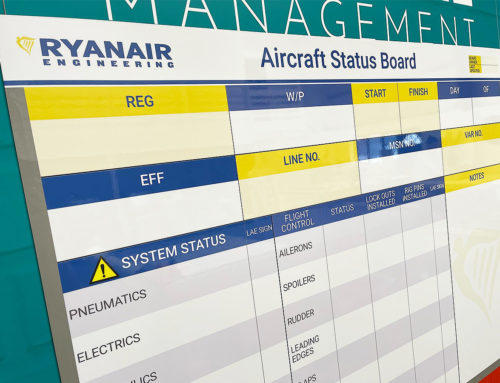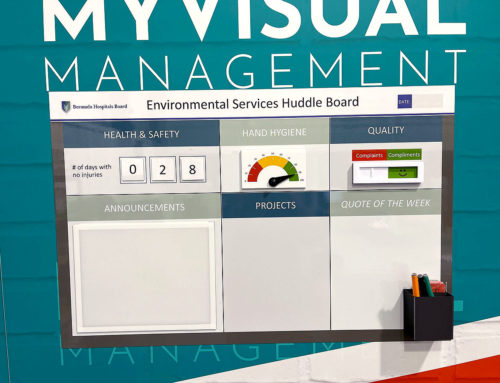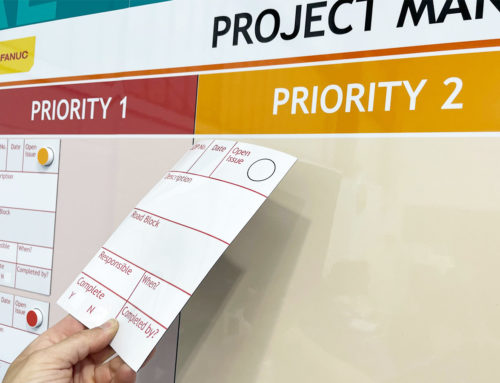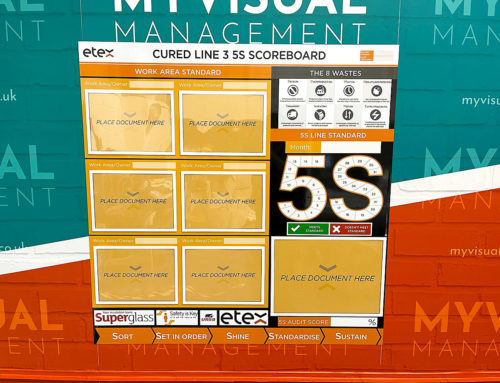Problem solve with a Continuous Improvement Process Board
In short, describe and analyse problems visually with a Continuous Improvement Process Board.
Above all, translate practical problem-solving methods on to a functioning visual management board such as this one.
Practical problem solving data
Choose which data to include on your board. Above all, make it work for you.
Fully describing the problem is part way to resolving it. In addition, fully identify root causes and generate ideas. Furthermore, to come up with countermeasures.
Add a Fishbone diagram to a Continuous Improvement Process Board
Firstly, a fishbone diagram helps work out the root cause of the problem. As a result, find the contributing factors. Choose to use 4M, 5M, or 6M, like in this example. Consequently, solve problems in an orderly and visual way. Above all, encourage the team to explore possible solutions.
Specify actions required and track progress
Above all, use your board to set countermeasures and record status. Furthermore, use dry wipe status circles for instant, visual updates. As a result, aim to solve the problem permanently.
See also our Practical Problem Solving Boards.
Furthermore, check out our Continuous Improvement Boards.
Further examples of our Problem Solving Boards
Our Approach
We create visual management boards everyday. As a result we have plenty of experience. We work for organisations in food production, the power industry, national rail, pharmaceuticals, education, healthcare, packaging and distribution.
Our team works with a simple idea or sketch and creates a professionally designed layout. This is then turned into a highly functional visual management board.
We offer customised options because we want to create the perfect board for you. So, here are a few examples. We can add magnetic areas or a dry-wipe finish (for use with whiteboard pens). Furthermore, you can choose Red/Green sliders or R.A.G. (Red, Amber, Green) status dials so you can quickly and visually update your board. These are just a few examples of the ways in which our boards can be tailored to meet your needs. You may also be interested in whiteboard overlays that can be used on top of an existing magnetic board.


